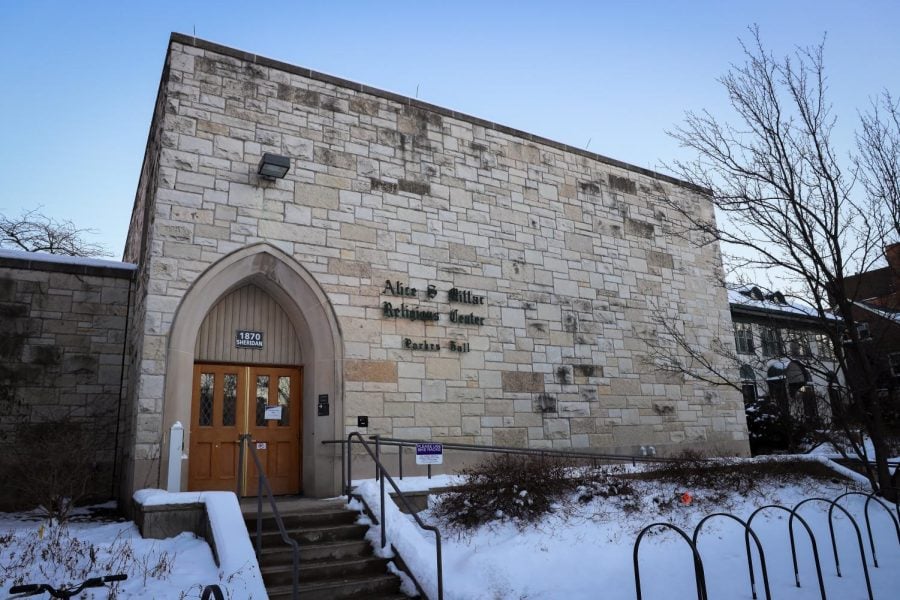Local religious leaders discuss faith-based efforts to fight racism during ‘Civic Love’ event
Daily file photo by Joanne Haner
Local religious leaders talked about increased “transparency” in Evanston regarding issues related to race, in addition to faith-based efforts to fight social injustices, during a Tuesday event.
October 26, 2022
Jewish Reconstructionist Congregation Rabbi Rachel Weiss recalled her time at Evanston’s Dr. Martin Luther King Jr. Lab Experimental School during a Tuesday event hosted by Northwestern Leadership Development and Community Engagement and Religious and Spiritual Life.
The school was designed to integrate primary education in Evanston. But Weiss said during her time there, there were almost no Black people in the parent-teacher association. She also said the new institution destroyed neighborhood school opportunities in non-white areas of Evanston.
“What happened to that school is really symbolic of all the things that happened in America,” Weiss said.
Panelists discussed Evanston’s history of racism and current faith-based efforts to fight injustices during the “Civic Love: Spirituality + Social Action” event. The speakers talked about increased transparency in Evanston regarding issues of race and social injustices.
“We know that there are a history of problems (in Evanston), like there are problems everywhere in the country and everywhere in the world, when it comes to racial relations, especially now with the rise of white nationalism,” Second Baptist Church Senior Pastor and panelist Michael Nabors said.
Nabors, who is also president of the Evanston-North Shore Branch of the National Association for the Advancement of Colored People, said it is historically significant that Evanston is the first municipality in the U.S. to create a reparations program.
However, he said he finds it surprising that NU has not become involved as an institution in the reparations program. He also mentioned Harvard University’s recent efforts to redress its ties to slavery via a $100 million commitment fund.
Nabors also explained his congregation’s efforts to discuss race and strategies to address racism through solidarity circles. He said each solidarity circle includes five white and five Black members.
The Rev. Kathryn Banakis of St. Luke’s Episcopal Church said her church dug into its own archives in 2020 to understand its role, or lack thereof, in civil rights efforts.
“To be able to start telling that history and to acknowledge what had happened and use terms like ‘historically white church,’ ‘church of colonizers’ and ‘colonial Christianity’ has been a helpful way to change dialogues so that we can show up in elements of social justice when opportunities arise,” Banakis said.
She also said it is important to create an atmosphere within her church where people can ask “stupid questions” and still feel loved.
Weiss said in faith-based efforts to fight social injustice, it is important to combine religious worship with activism. She said fighting racism needs to be an active effort by the entire congregation, rather than a burden placed on a few.
The Jewish Reconstructionist Congregation also has an anti-racist task force, which examines all elements of the congregation, ranging from hiring to the color of baby dolls present in its Early Childhood Center.
However, Weiss said education on social issues is also important in fighting racism, in addition to reparations and atonement.
“This is the white community’s responsibility to educate and motivate and engage ourselves to do this,” Weiss said.
Email: pavanacharya2025@u.northwestern.edu
Twitter: @PavanAcharya02
Related Stories:
— ‘You won’t break my soul’: Religious and Spiritual Life hosts Beyoncé Mass
— ‘Gays and Gospel’ event honors Black and queer gospel singers



